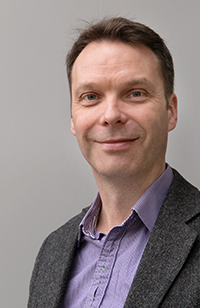How can you write a compelling paper? Or avoid having your paper rejected? Have you covered every step in your clinical research article? Scientific writing can be learned! And how to get published, too.

Karger supports young researchers in every step of their research project and for this reason we create products and services all along the research cycle. So Campus fits perfectly into our product portfolio. To learn more about the idea behind it, I interviewed Paul Lavender, Strategic Competence Lead of Education and Learning at Karger.
Paul, how did you come up with the idea of creating courses about getting published?
Campus is a collection of 10 courses to help authors in the health sciences get their papers published. The courses were created in response to demand from our customers — particularly librarians. Publishers are increasingly expected to provide not just articles in journals, but instructions on how to write these articles. Originally, we planned to run more onsite courses, but naturally the pandemic changed our approach.
Who will profit from these courses?
Health science researchers at all levels will find these courses valuable. For the early career researcher, the more basic courses on how to avoid rejection from a journal may be most beneficial. Senior researchers may enjoy topical courses in fast-moving fields, such as how to effectively market your research. Those who perform peer review for Karger will also have access to the courses on peer review — including our editorial board and partner publication boards.
What obstacles do researchers face in their publishing journey?
Actually, very many — which is why the majority of submitted papers in health science never go on to be published in any journal. Often this involves some form of incomplete or unclear presentation of the study findings.
Are there also obstacles in an earlier state of the research cycle?
Yes, the largest obstacles to publication are created before the publishing journey even begins — a poor or uninteresting study question and study methodology or conduct that invalidates the results of the study.
How does our courses address those?
We focus a lot on the importance of producing high-quality data that give insights into a clinically interesting question. This is a bit like using good ingredients with cooking — without good ingredients at the beginning, it’s nearly impossible to create anything tasty.
In addition, we stress that publishers want to publish high-quality work, and focus on strategies for authors to not only produce such work, but also to be seen to produce it. In other words, to make it easy for the publisher to accept their paper.
What is the university’s benefit?
Simply, if the students have a higher chance of being published successfully in a high-quality journal, their institution also benefits.
We have also tried to cover topics that senior lecturers would not have covered when they were students — such as preprints and social media. So, we hope that universities will use these to complement their existing curriculum or even as internal training for staff.
What’s your idea for the coming year? Will you add more courses?
We will have quarterly webinars for Campus students to discuss questions that they have submitted after completing a course. I’m very much looking forward to these.
We would love to expand Campus, but it may be that we go ‘deeper rather than wider’, so discussion forums/walls and more live events, rather than simply adding more courses.
What topics will they cover?
Students can submit ideas for upcoming courses, so I think we’ll just see where there’s a strong demand. I suspect we will see demand around hot topics such as open data, metaverse in science, etc., which is great, but may need to be micro-courses that can quickly be updated.
Which course do you like best? And why?
Any course that doesn’t have me in it! 😉 Seriously, it would be impossible to choose because each main instructor has brought their personality to the courses they have created: my colleagues Grainne, Sonja, Inês, and Beth. Sophie has done a great job compiling exercises and quizzes. I love each course and learned something from each one. I’m extremely proud what this team has achieved.
Learn more about Karger Campus.






Comments
Share your opinion with us and leave a comment below!